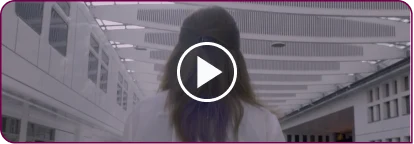Many research groups in the Netherlands contain Research Software Engineers. This page aims to provide an overview of these groups. If you would like to add your own group here, please fill this form.
The descriptions of the groups below include a description of the group, the size of the group (in FTEs), as well as the percentage of total time spent on RSE activities on each group (RSE focus).
RSE Groups in NL
Research Data Management, Research Support @ Amsterdam UMC
Research data management (RDM) aims to control the entire data management process along the research lifecycle; from study preparation, data acquisition, data processing and statistical analysis, writing and publishing, to archiving and open data. Research data should be organized according the FAIR principles, making data Findable, Accessible, Interoperable and Reusable and, where applicable, additional requirements (e.g. for WMO, GCP and GDPR). It should be well documented, transparent and traceable. Legislation and growing emphasis on issues such as reproducibility, integrity of research and the requirement of subsidy providers for sharing data require specific working procedures, facilities and support. All Amsterdam UMC (clinical and non-clinical) researchers can get support on their study preparation, including writing a data management plan, their data collection (including appropriate tooling), preparing data for statistical analysis, and sharing and publication of research data. The Research data management department’s expertise is translated into policies, education, consultation and executive support, and we are the entrance point for requests for Epic data and setting up an additional data collection for research in Epic.
DCC @ TU Delft
The TU Delft Digital Competence Centre (DCC) is an on-campus initiative to help researchers make research data FAIR, improve research software, and apply computing practices to increase the efficiency of the research process. The DCC is an initiative of the Open Science Programme at TU Delft designed to benefit researchers at all levels.
Electrophysiology of the heart @ Erasmus MC
At the (cardiac) electrophysiology group at the department of cardiology at the Erasmus Medical Center in Rotterdam heart rhythm disorders are studied by means of the analysis of detailed measurements during (open) heart surgery procedures, as well as with laboratory setups. The group is composed of a large part of PhD and Master students from medical and related study areas. Two people develop the main software to record, reduce and analyse the large and growing amount of data.
The Research Software Lab of the Centre for Digital Humanities @ Utrecht University
The Research Software Lab team of the Centre for Digital Humanities at Utrecht University consists of ten scientific developers who provide technical support by creating custom software solutions for research and education purposes. Their expertise spans a wide range of applications, including databases, visualizations, and text mining tools. Additionally, the CDH RSLab offers guidance on (the adaptation of) ready-to-use research software solutions. All of our research software developers have humanities backgrounds, in fields such as linguistics, history, musicology, and artificial intelligence.
REIT @ Computer Science TU Delft
The Research Engineering and Infrastructure Team (REIT) is a diverse team of research (software) engineers dedicated to support researchers at TU Delft's Computer Science departments with their expertise in software engineering, data science, and high-performance computing. The team contributes to projects across all sections of computer science at the university.
NL-RSE. The community of Research Software Engineers from Dutch universities, knowledge institutes, companies and other relevant organizations for sharing knowledge, organizing meetings and raising awareness for the scientific recognition of research software.
